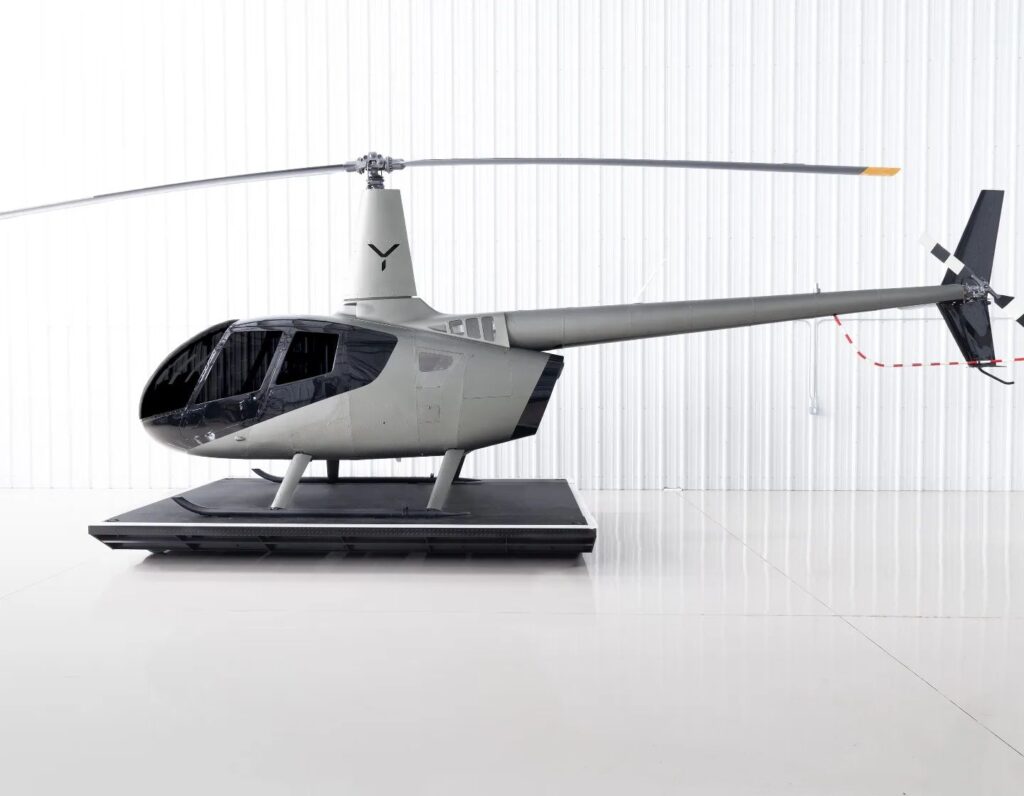
Skyryse announces plans to bring a single-pilot fly-by-wire VTOL to market, providing full IFR capability. (Photo: Skyryse)
Recently, Skyryse announced plans to certify a variation of the Robinson R66 helicopter for instrument flight rules (IFR). This helicopter, equipped with improved systems, will make general aviation safer and more affordable, with the costs of purchasing and operating this system only a fraction of pre-existing programs with the same purpose.
Skyryse is an aviation technology company headquartered in Los Angeles, California, that aims to reduce and eventually eliminate general aviation fatalities through a widespread adoption of a universal flight deck. Its system FlightOS helps to make flying more accessible and safer for all, and its recent improvements and applications promise to bring improved safety and reliability to certain sectors of the aviation industry.
FlightOS, Skyryse’s automated flight control system, is available for a multitude of aircraft specifically in the general aviation sector. It strives to bring unprecedented levels of safety, mainly through making the program easy to use and intuitive through the adoption of simpler controls. This always-on and always-engaged system has the ability to maintain critical flight details like altitude, heading and velocity, even in inclement weather with poor visibility or hazardous conditions.
The need for improved systems that can perform these functions is critical to the safety and reliability of the industry. As Dr. Mark Groden, founder and CEO of Skyryse, explained, “Cockpits and flight control systems have not changed much over the last century. We’ve reached a point where OEMs, pilots, federal agencies, and general aviation customers are looking for, and even demanding, changes that increase safety and reduce pilot error. At Skyryse, we believe it’s a moral imperative to deliver on this mission. We strongly believe that if this technology had been available sooner, we would have saved more than a thousand lives, including Kobe Bryant.”

Pictured above, a Robinson R44 modified by Skyryse makes a fully autonomous flight above Los Angeles. (Photo: Skyryse)
One of the challenges involved with the introduction of more sophisticated and reliable systems are the associated costs. As of 2023, the average rotary airframe equipped with IFR capability cost somewhere around $5 million. In addition to this sky-high cost, these aircraft also cost more than $1,500 to operate hourly. Meanwhile, the Skyryse Robinson R66 will be only a fraction of this cost, and will be over 50% cheaper to operate while still offering similar levels of safety.
Skyryse believes the success of this aircraft and FlightOS will have benefits that extend to other segments of the aviation industry, namely helping urban air mobility (UAM) to find reliability and thus practical application in major metropolitan areas. UAM operations are often greatly impacted by weather. In fact, in 2019 when Skyryse ran a mass air taxi operation in Los Angeles, it found that 25% of the time operations had to be grounded due to inclement weather. Through implementing IFR on rotorcraft, Skyryse believes reliability for UAM will improve, opening the door for practical application across the world.
Aviation companies are already demonstrating interest in Skyryse’s innovations. Air Methods, an air medical transport company, has already signed an agreement with Skyryse for the retrofit of over 400 units (mostly single-engined helicopters). As this IFR technology is introduced in more flight decks, Skyryse hopes to improve safety and reliability across the aviation industry.